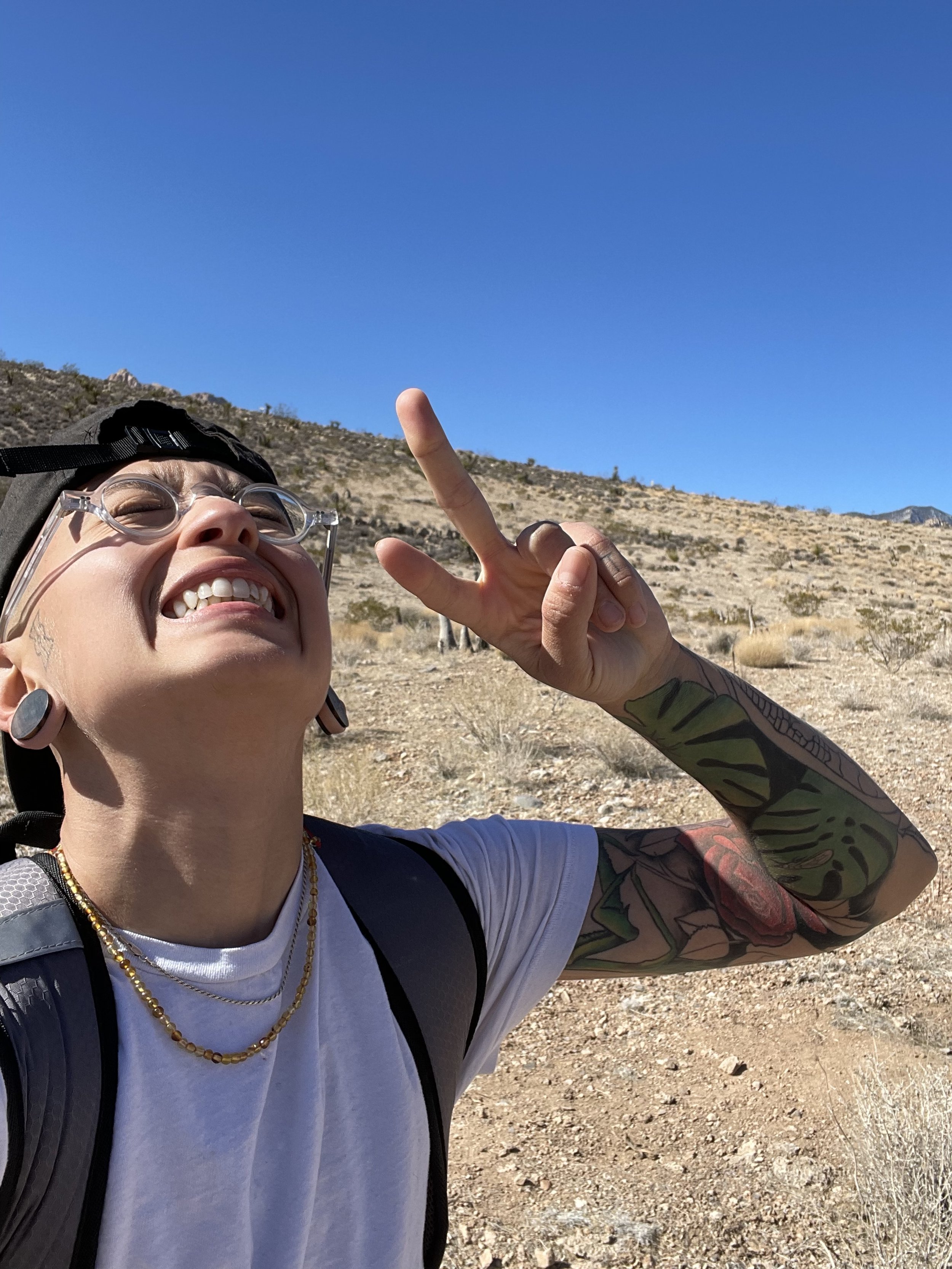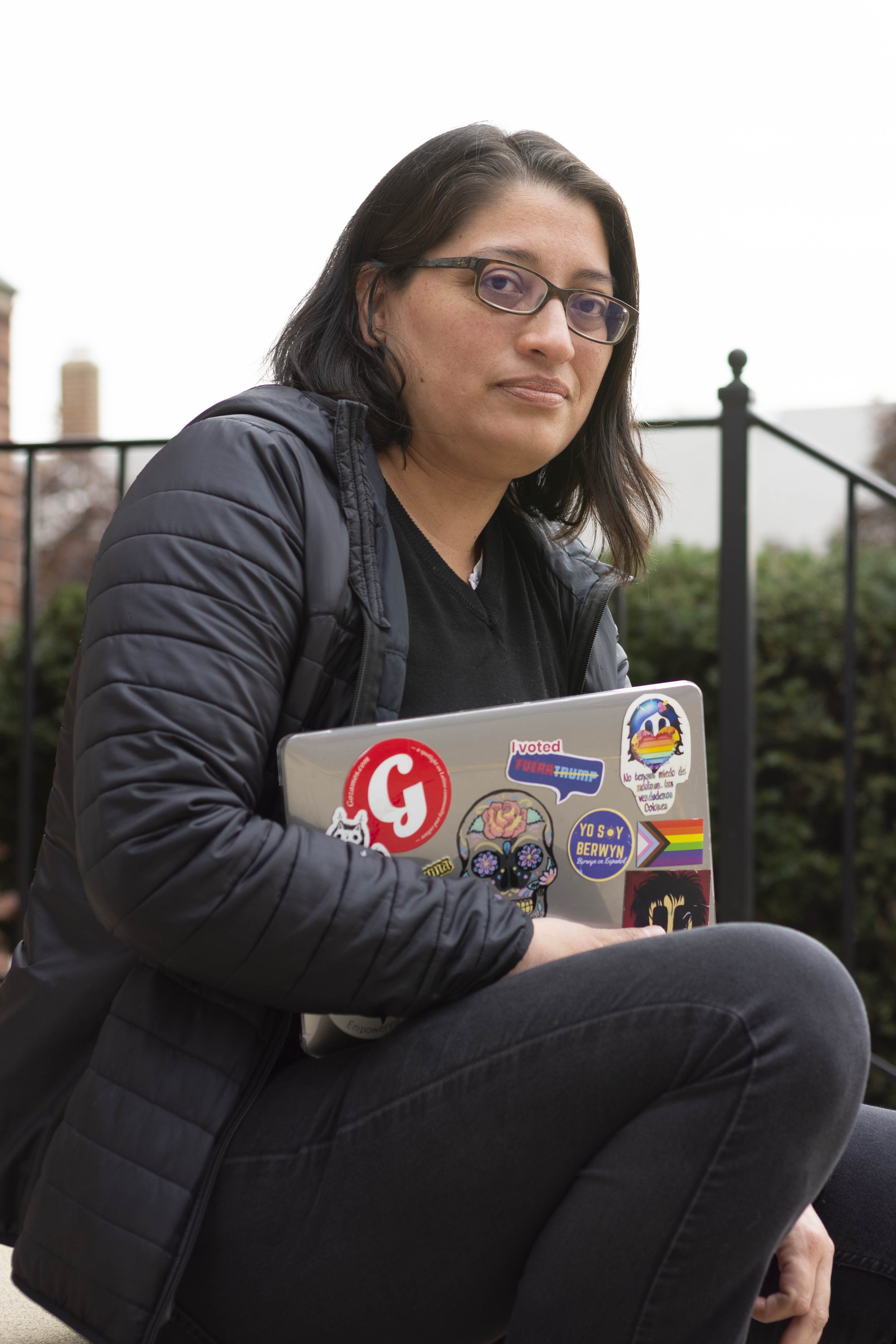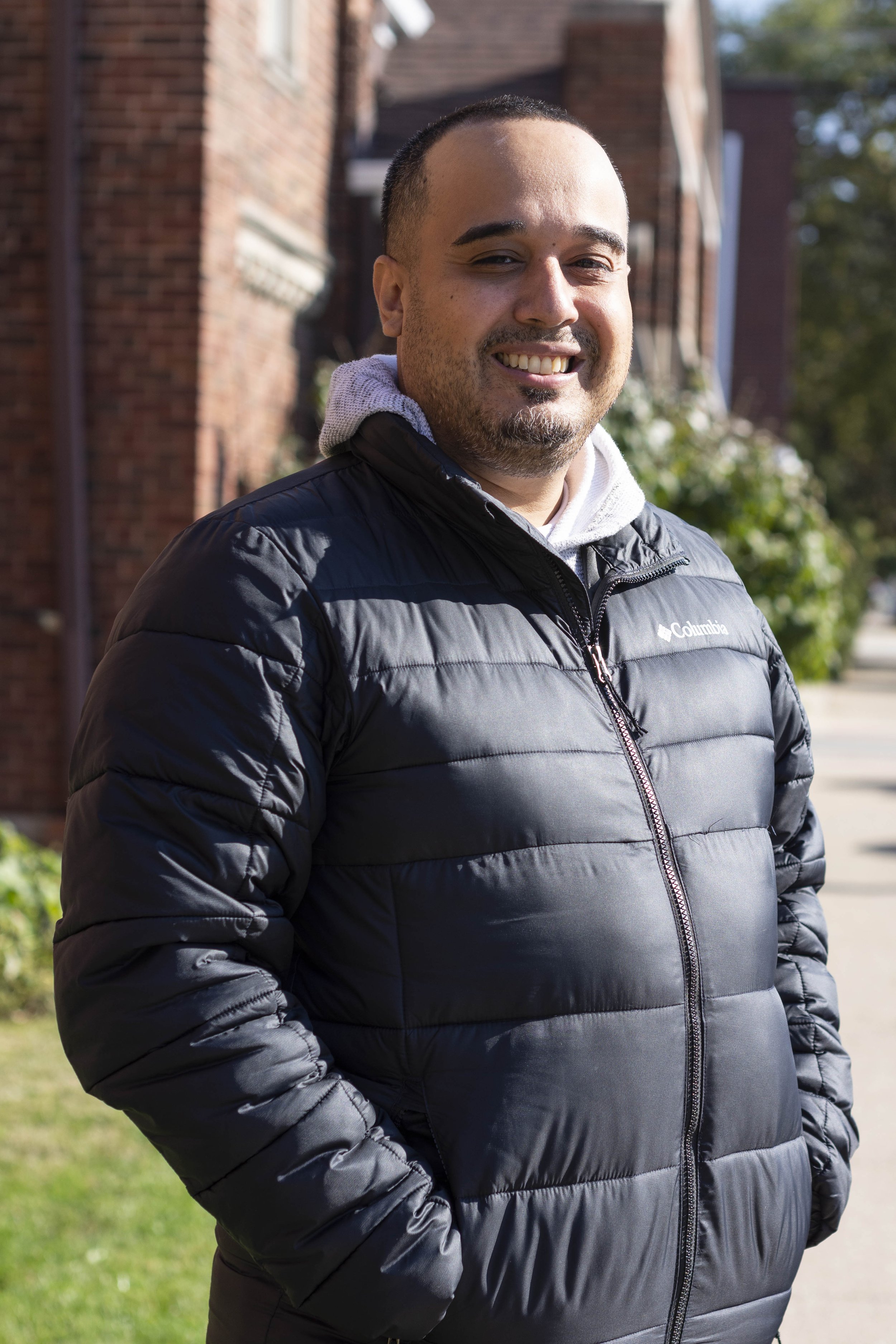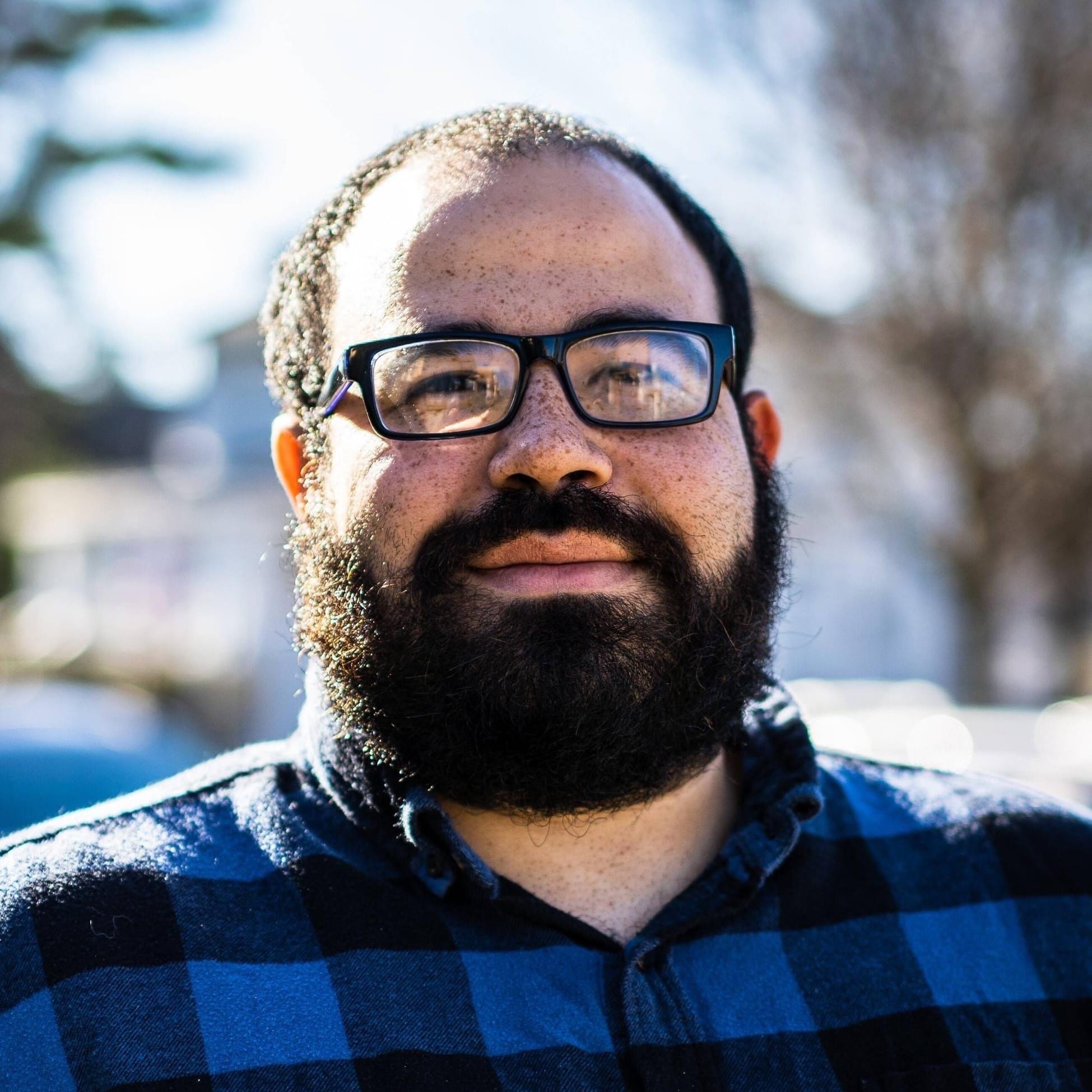Disrupting Suppression in Cicero and Berwyn: ‘Now's the time to pull up, now's the time to get involved’
Illustration by Haley Tweedell
By: April Alonso
In this bilingual collaboration with ¿Qué pasa, Midwest?, we explore how the Latinx community in Cicero and Berwyn practice their first amendment right to free speech and whether this right is suppressed by local governments. We’ll hear from community organizers, elected officials and local residents.
Music Credit: La música para este episodio is an original composition by Norma Hilton who also co-produced this episode.
Guest in order of appearance: Nateo Carreño, Luz Chavez, Rob Pabon, Joe Carmichael.
Full transcript below with photos:
Paola Marizán: From WNIN, this is ¿Qué Pasa, Midwest? Telling the stories of Latinos from the homeland to the heartland. Soy Paola Marizán.
Hola, bienvenidos al season 7 de nuestro podcast bilingüe.
This season we’re exploring how the Bill of Rights applies to Latinx people in the Midwest en muchas areas; like freedom of speech, healthcare, housing and community health entre otros temas.
For this episode, we will be joined by a new collaborator, April Alonso, a multimedia journalist from Cicero, Illinois and co-fundadora of Cicero Independiente, a hyper local news organization. Cicero publica in print both Spanish and English para asegurarse that their work is accessible to all Cicero and Berwyn residents.
En este episodio we talk about the first amendment y como los comunidades de color in formerly sundown towns se organizan dentro y afuera their local governments.
Nateo Carreño: Cicero has history as a sundown town. In Cicero, as recently as 1960. It was not safe to be here past sundown as a Black person and Cicero does absolutely nothing to address that.
April Alonso: That was Nateo Carreño. They are a descendant of la gente de Sierra Madre Occidental del Norte de México and an organizer in the Cicero community, a city suburb outside of Chicago.
In a town where the majority of the people living there are working class y monolingual Spanish-speaking immigrants, there is a lack of information in Spanish and town board meetings are in English with no Spanish interpretation available.
Yet, those in elected seats don’t reflect the community as the majority of the town's local government officials are white.
Nateo Carreño: At the end of the day, right, if you are a, you know, a cisgender, identifying white person and you and I have a conversation. I'm a trans person, my family, again, my family are immigrants from Mexico, right? We have a totally different life experience. And so, in our conversation, I'm probably going to notice some things or have experienced some things that you haven't experienced that that person hasn’t experienced, because, again, the way we move through the world is different. So I do think that there's a problem that the town doesn't have more people who look like us with our experiences, in positions to affect change.
April Alonso: According to the 2020 U.S. Census Bureau American Community Survey over 85,000 people live in Cicero, with almost 90% of the population part of the Latinx community. White residents make up just over 6% of the population following white flight in the 1960s.
Con la falta de una experiencia vivida compartida con los que están en el poder y los que viven en la comunidad, tambien falta representación en el gobierno local, esto puede crear una barrera para los residentes de la comunidad.
On October 26th this year, community members organized to speak during public comment of the town board meeting about the COVID-19 federal relief aid funds through the CARES ACT, in the amount of 1 millión, used to pay 23 police officers’ salaries. The organizers conducted surveys in the community and had nearly 500 residents, both English and Spanish speaking, fill out the survey saying how people in the community would’ve liked for the money to be spent. Here’s community member Leslie at the meeting.
Leslie: To our knowledge, the town of Cicero did not publicly announce the receipt of these funds or solicit any feedback from community residents about how money was spent. We decided to ask Cicero stakeholders how they wanted the town of cicero officials to have appropriated this federal money based on their own needs.

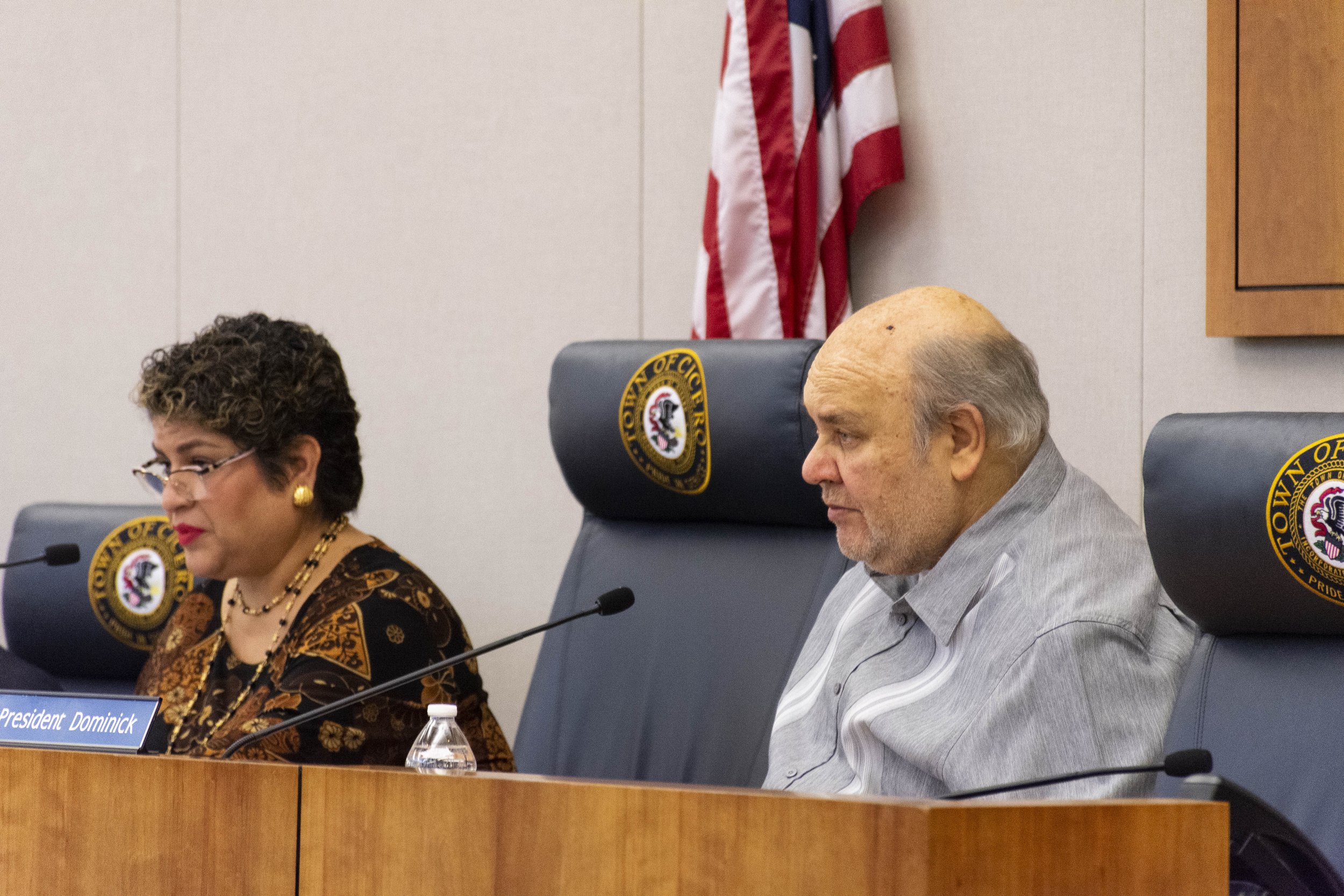

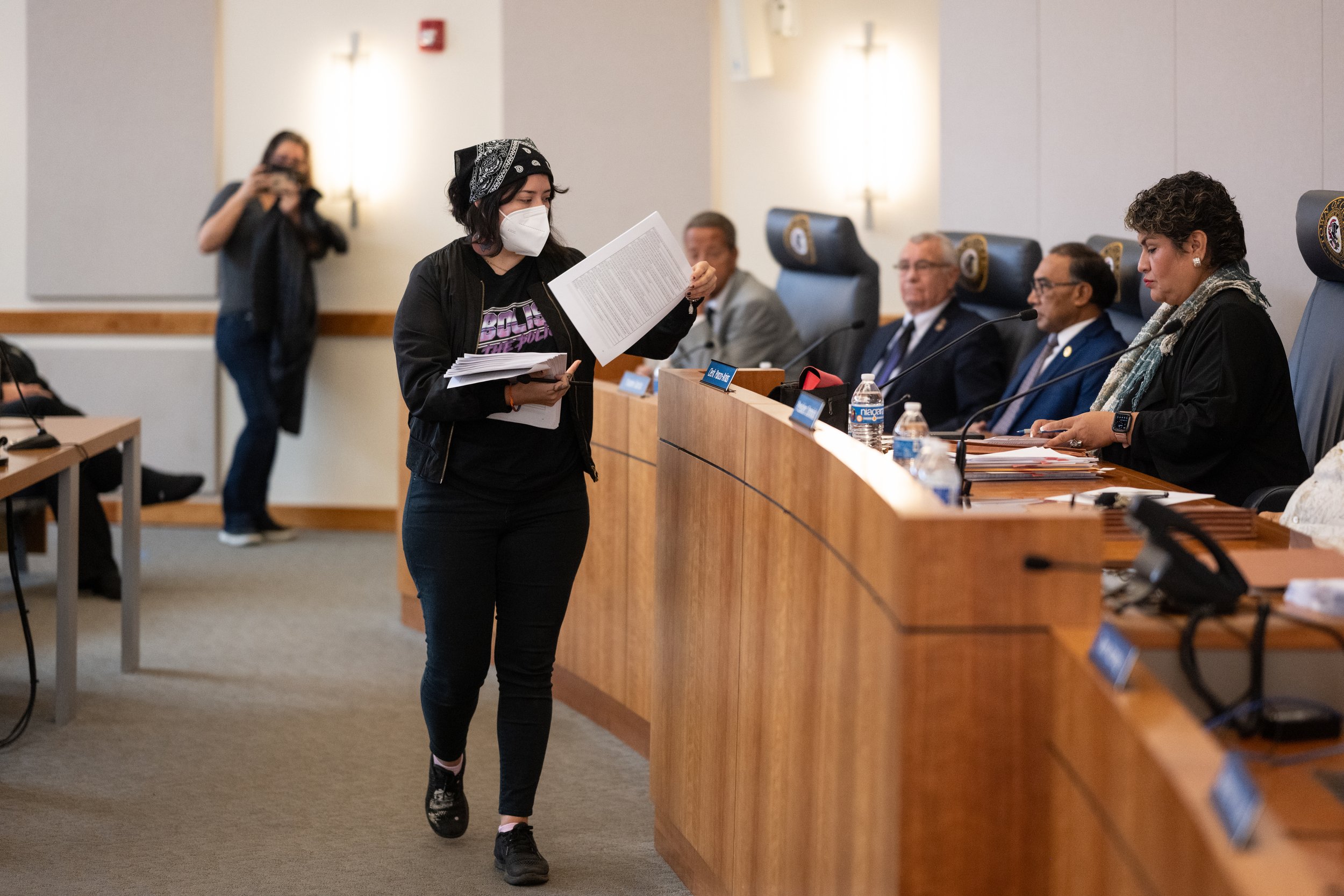
April Alonso: Leslie states that 77% of those in the community, who filled out the survey, required some form of assistance. Among the top responses were financial assistance for utility bills, food security, employment security, paid time off during recovery from COVID-19, or paid time off to receive the vaccine and affordable mental health services and affordable health care.
Vanessa: We were able to collect dozens upon dozens of similar stories. And that's frustrating. These are the lived experiences of nearly 500 individuals, you were elected to advocate for. 65% or 299 individuals stated to have not known how the funds the Town of Cicero received through the Cares Act, were used.
April Alonso: Parece como es simple, you speak up and things change or if you go to board meetings, you will be included in decision making. Pero yendo a las reuniones no es fácil para la mayoría de los residentes de Cicero que son parte de la clase trabajadora, ya que esas reuniones se llevan a cabo los martes a las 10 am, con poco acceso a lo que se discute y sobre que votan en las reuniones municipales.
Vanessa expressed that issue to the board.
Vanessa: Unfortunately not everyone could make it here today which is a reflection of the inaccessible meeting times you have been hosting the Town Board meetings for years now. Whether intentional or not, it does not work.
April Alonso: As I spoke with Nateo, they explained the environment for organizers in Cicero is different since this city suburb falls outside of the border of Chicago, where Nateo explains a beautiful network of organizations that support one another, resides.
April Alonso: “Do you feel like you and the community are heard by the local government?”
Nateo Carreño: I have to laugh so I don’t cry *pause* NO, no, no
If Lori Lightfoot doesn't do her job, if an alderman doesn't do their job, you got all these orgs that come up and say, Yo, what are you doing? Unfortunately, in Cicero, if you're an organizer, and you know, there's one board, there's one president, you know, there's the rest of the, you know, leadership of Cicero. If you say something, they're not held to that same degree, because you're one of what maybe like two or three organizations, right, made up of like, four people each, you know, and, and so it's almost like, like, they don't have to worry about that uproar from dozens of organizations because it's only a few people making that noise.
April Alonso: Nateo dice que la manera en que los líderes responden y critican a los organizadores viene de su ego y la cantidad de años que han estado en sus posiciones de poder. Para Nateo, la cantidad de años en una posición de poder no equivale a saberlo todo.
Nateo Carreño: Doing this for years doesn't matter. Right? It doesn't matter, because over time, things change. And if you're not willing to listen to how things are changing over time, you need to step away, you need to step away and allow someone else to come in who has a better capacity to receive community members who are in distress. Anytime a community member brings something to the attention of a town government. It's because like las cosas estan grave, las cosas estan grave,things are dire.
Bridget: It is evident you do not represent our best interest. We are more than taxpayers. We are people, we have feelings, we have needs just like all of you. You all have families at home. And you all have relatives and neighbors who probably went through the same thing. And fortunately for all of you or most of you, you didn't have to go through this and that's okay. We're just asking you to be human and to listen to us to empathize with us.
Nateo Carreño: People would not feel called to rise to that occasion, if it wasn't serious. So it’s really sad that in this neighborhood when that happens, when someone says ‘I cannot tolerate these conditions, my community is stressed, I am stressed, especially now during the wake of a pandemic, that the answer is to berate, is to ignore, is to dismiss, is to neglect.
Leslie: In these reports, are 463 voices that we gathered, ourselves, voluntarily. If you reject this report, you are rejecting 463 voices of people who needed aid and didn’t get it. This pandemic is ongoing and non of you are wearing your masks! SHAME ON YOU!
*sound of a stack of paper landing on a surface*
Town Clerk, Maria Punzo-Arias: Don’t throw the paper, please.
Unknown person: Have respect.
Town Spokesperson Ray Hanania: Can I have a copy?
Community member: Worry about who has a mask on.
Maria Punzo-Arias: I’m fully vaccinated.
*sound of water bottle falling*
Town Spokesperson Ray Hanania: Can I have a copy, before you destroy more property? Can I have a copy? I've asked for one.
April Alonso: We reached out to the Town Spokesperson, Ray Hanania, who you hear in the audio clip of the board meeting, with a request for an interview or written comment. He declined. In another attempt, we reached out to Town committeewoman Blanca Vargas for a request for an interview with no response.
Nateo Carreño: Again, it goes to show that I think it points us in the direction of just understanding that if you are not an individual, who is doing the work, to interrogate how violence and harm can manifest when you do not acknowledge the conditions that you know, again, racism, capitalism, colonialism, misogyny can create, you need to step away from your post, because you are only going to, you're only going to create more harm.
April Alonso: When they were 18, Nateo first started organizing by canvassing during elections. They were followed by unmarked cars and police cars would park outside their house. Esa experiencia parro a elles de organizar por un rato.
Nateo Carreño: When you flat out try to silence people, try to intimidate people into silence, you are effectively, EFFECTIVELY, disrupting their ability to participate in the first amendment because you are striking at the most human emotion, which is fear.
April Alonso: In addition to how systems in Cicero are used to intimidate and suppress people from speaking up, we look at how the lack of acknowledgment of Cicero's racist history and past, impacts the community.
In response to racial unrest, organizers held a march for Black and Brown unity on June 1st, 2020 in Cicero and Berwyn. It was the largest demonstration in their histories. They made a stop at the intersection of Laramie and 25th Place where Jerome Huey was killed by white supremacists in 1966.
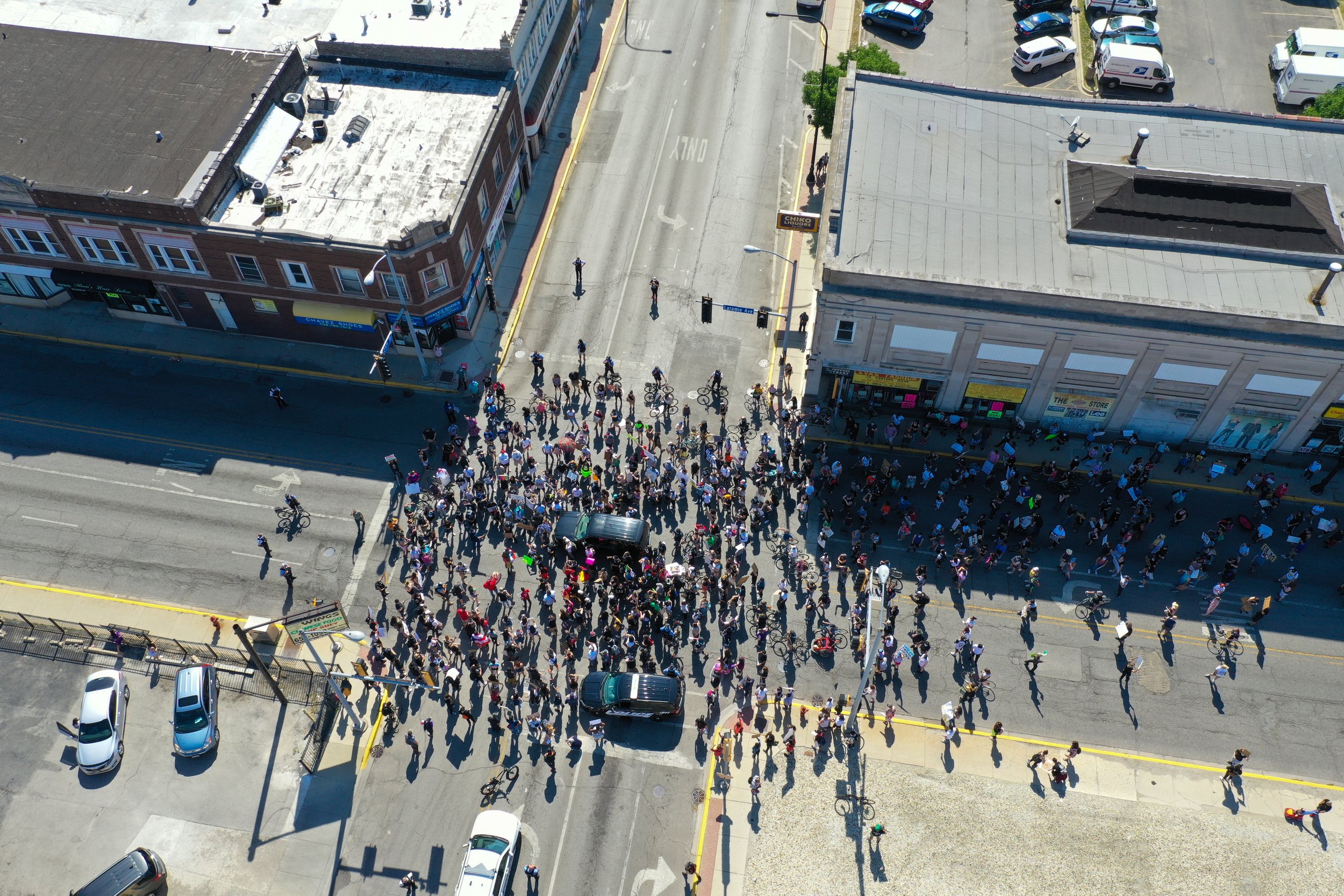
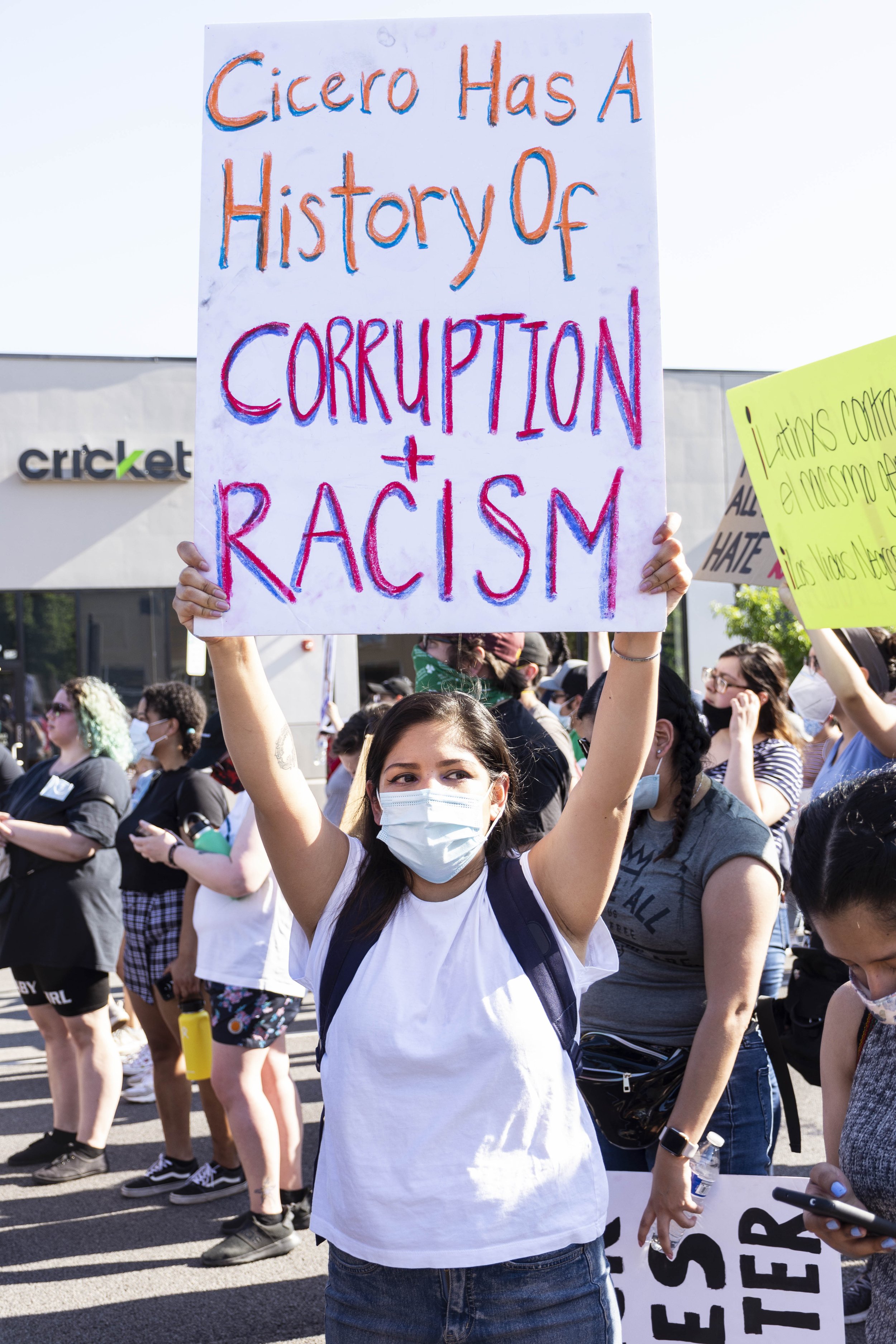
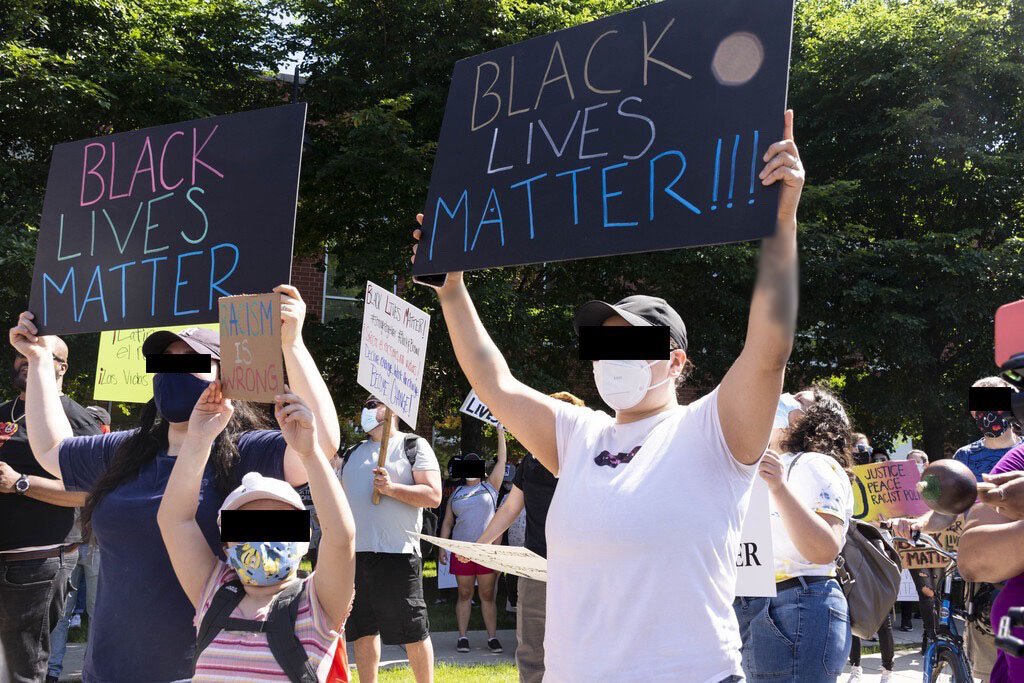
Nateo Carreño: And you don't see anything there. You don't see anything there that acknowledges his name, that acknowledges who he was, that acknowledges the fact that he was a young man in this community looking for a job. What do we have, we have Columbus, east and west, where we're actively acknowledging somebody who is responsible for the genocide of an entire indigenous community.
April Alonso: Huey’s case received a lot of publicity at the time, todavía se mantiene como un recuerdo de los efectos del racismo en el área de Chicago y también con landmarks such as local schools bearing the names of a perpetrator like Christopher Columbus. That racism extends into today.
A medida que las personas de color se organizan en estas ciudades observamos cómo los sistemas racistas siguen activos y cómo se utilizan para oprimir y silenciar las voces de la comunidad.
Nateo mentioned that the racist system is still in place in Cicero. Luz Chavez, a Berwyn, Illinois resident y activista, says it’s also in place for Berwyn. Like Cicero, most residents of Berwyn also speak Spanish, and both suburbs have histories of being sundown towns.
Luz Chavez: So that's a bit of that legacy in how few Black folks we have here in Berwyn. Again, because, yeah, it was a sundown town long ago. But that very much the racial harassment and racism has been really consistent since then, in different ways. Even though the majority is Latino, we know there's a lot of anti-blackness in our Latino community and we haven't done enough to address that. There's still like a real concentration of power in the hands of the few white folks in Berwyn. And it's enabled by these anti black Latino residents. That's who the political party counts on as part of their base, the racist and what I like to call their brown guard dogs.
April Alonso: In the 2020 U.S. Census Bureau American Community Survey Berwyn’s population was over 57,000 with around 64% of Berwyn residents identifying as Hispanic/Latino and 23% of people identifying as white alone.
When Luz Chavez moved back four years ago, a welcoming city ordinance was about to be passed - an ordinance that prohibits the city officials & police from collaborating with ICE. That experience was eye opening for Luz.
Luz Chavez: That was the first city council meeting I ever went to where the council voted on passing that. And I remember, you know, coming back to Berwyn saying, ‘Wow, it's gonna be a sanctuary city. And then I saw everybody on council and the majority were Latinos. And I was like, ‘This is awesome. Berwyn has changed so much.’ And it was like so naive, because I kept going to city council, and I kept saying how the majority of those Latino Alderman would just be we're just essentially yes, men for the mayor.
April Alonso: Ella se sintió inspirada a organizar después de ver cómo los que estaban en poder defendían un sistema que no funcionaba para la mayoría de los que viven en Berwyn.
Luz organized around several issues, one specifically about the lack of Spanish translation and interpretation happening with information provided by the City of Berwyn.
In 2019, Luz began making public comments during city council meetings and says one of the times she spoke, she was shut down by Mayor Lovero. There is a video of that moment that went viral on Facebook.
Luz Chavez: The issue is obviously not about money. It's about whether Berwyn believes the voices of Spanish speaking residents are important enough to invest in. If you believe that they are then you need to follow that up with action. I have two questions for you. One is what next steps do you plan on taking? And by what date will you follow up with me.
Mayor Robert Lovero: I’m not going to give you a date I will follow up with you because it's insisting, which you guys normally do, which is not the way the government operates.
Luz Chavez: Who’s you guys? I’m Luz Chavez.
Mayor Robert Lovero: That’s right.
Luz Chavez: I’m not you guys, I’m one person.
Mayor Robert Lovero: In several meetings I've had with you. It's always when, when, when, when
Luz Chavez: That's a normal question to ask when you present.
Mayor Robert Lovero: The government doesn’t work that way. So I'm not going to give you a date okay, I'm not going to debate...
April Alonso: It got the attention of a reporter who went to a meeting at City Hall held by Illinois State Representative, Chuy Garcia where the reporter brought this incident to Garcia’s attention. Garcia encouraged the community to organize to receive Spanish translation. And a week after that, Alderman Lennon of the 1st ward in Berwyn made a recommendation to city council to begin translating their website and meeting agendas and minutes.
Sin embargo, las agendas de las reuniones aún no están disponibles en español y no se proporcionan traducciones para las reuniones del consejo, a pesar de que más de la mitad de la ciudad de Berwyn habla solamente español en sus casa, con una pequeña cantidad de hablantes bilingües.
Luz Chavez: How is the city being accessible to civic participation, and just civic knowledge from, you know, residents when they keep a lot of that stuff in English?
When asked if she feels that the community is heard by the local government Luz responds.
Luz Chavez: The city government listens to residents in order to surveil what they’re saying, flip the narrative, justify themselves and suppress freedom of speech. There's this weird, like, disconnect between, you know, the mayor and the city saying, Oh, well, not everybody's on Facebook, you see this stuff that people say on Facebook, but that's not how the majority of residents feel. But they're right there looking at everything we're saying. And then either trying to shut it down, or trying to do some kind of PR campaign to counter the issues that residents are bringing up.
April Alonso: Luz says the city doesn’t stream City Council meetings online to Facebook anymore, only YouTube, because of low numbers and reach to residents.
She was berated online by Berwyn Police officers for speaking up, and the pattern extends all the way to the Mayor who tries to discredit her and others and dismiss the issues they bring to the government’s attention.
Luz doesn’t think the Democratic Citizens of Berwyn (DCOB), a political party which includes the mayor and other government officials, hears residents. En vez, ellos los intimidan o castigan.
What do other local elected officials have to say about the issue?
Well, we reached out to DCOB member, Alderman Mary Beth Arenella from the 7th ward in Berwyn, with no response. But two other independent Democrats responded. Alderman Rob Pabon of the 5th ward and Alderman Joe Carmichael of the 8th ward.
Pabon dice que ser un demócrata independiente, en un gobierno controlado principalmente por el partido DCOB de mayoría blanca, hace su trabajo más difícil.
Rob Pabon: So that means a lot of things to a lot of people in the community. Being that we've had a local Democratic Party, who's been in power for a really long time. And different iterations have ran the city over the past 30 or 30 plus years. I'm seen as kind of like as the outsider, right.
April Alonso: Pabon feels like he has to take extra steps, doesn’t have direct communication with department heads like other aldermen do, and he doesn’t get responses to things as quickly.
He says it’s important to hear out all residents in his role as Alderman, even if they don’t agree with him.
Rob Pabon: I don't have all the answers. And I think that nobody has all the answers, right? Having a growth mindset, as an elected official, I think is really important.. And I say that because I think that in our city of Berwyn right now, there is a culture of non-acceptance of feedback, right? I cannot be told that what I'm doing right now or about to do needs some more thoughts, or that maybe this process is imperfect, right? And I think that's a byproduct of consolidated power.
April Alonso: Joe Carmichael describes how difficult it is to question any council decisions.
Joe Carmichael: They take criticism as a personal attack, they don't take it as something that they can use constructively to try to make improvements...we need the diversity of opinion. And having that diversity of opinion people who are community centered people who are thinking about people from all walks of life. We need more people like that in positions of power.
April Alonso: Like Pabon, Carmichael also faced difficulties as an independent alderman. He recalls coming across a Freedom Of Information Act request, a request to access public information, of emails of daily crime and incident reports that the DCOB alderman were receiving daily while Carmichael’s 8th ward residents were asking him for information about a shooting and carjacking in the 8th ward.
After an open letter to the Mayor and City Council, along with public pressure, Carmichael was able to have a meeting with the police chief and is now able to receive those emails.
Joe Carmichael: That's horrendous that it took that long for me to be able to do that...I think it's an electoral punishment. So it's, I'm not I'm not a part of the group. So whatever they can do to stifle my progress to stifle what I'm doing. That's what they've decided to do.
That was putting people in my ward at a disadvantage to not have that information that they needed.
April Alonso: Pabon describes the city council room when people walk in -- the aldermen face one direction of the room towards the Mayor so the Aldermen’s backs are to the people.
Rob Pabon: And that direction happens to be towards the mayor towards folks with power, right? it's almost like you're begging for attention, when people have their back to you. Right? And you don't feel heard, you don't feel seen. That whole dynamic, right is not conducive for, you know, folks to feel empowered to come up there and say their piece.
April Alonso: Como Carmichael says, City Council’s voting process lacks transparency and makes it difficult for residents to get involved. An example he shared was a 3rd ward meeting where residents spoke out against the council voting on an issue they had no previous knowledge of. The agenda for the meeting listed a vote for police use of a license plate reader system. However, the residents had no way of knowing the vote was scheduled prior to the meeting due to the convoluted city council voting system. The vote was stopped since residents voiced their discontent regarding the lack of transparency surrounding the vote.
Joe Carmichael: Oftentimes, with things like this, we will get the information in the council of the whole, and then take a vote on it less than 30 minutes later. And that's not transparent. I don't have time in that 30 minutes to go talk to my residents and see what people are thinking. It doesn't doesn't really give them the time to know what's going on. It's not really an engagement strategy. It's a lot of let's see if we can do this before anybody realizes it's done type thing, in my opinion.
April Alonso: Carmichael and Pabon both either provide Spanish interpretation in person along with engaging with residents through bilingual social media posts, list serves, and door knocking.
Joe Carmichael: So by just by doing those small, little activities, making those connections, getting people to know their neighbors, not making their neighbors the enemy. We can continue to move forward with that.
April Alonso: Both Cicero and Berwyn, have a long way to go when it comes to providing accessibility para la gente que vive en esas comunidades. Despite the history, inequities and suppression in these two suburbs there is hope or eagerness for change to come.
Nateo Carreño: I almost feel like something's brewing. I can't compare it to anything else other than like dormant spores of fungi, so when you're in when you're in a forest, or in a natural setting, the things about mushrooms is that the spores lay dormant for a really long time until the conditions arrived, that can support that life. And then they emerge, right. I almost feel like all these folks doing all this work, are like these little spores, right? And like, you get to see them pop up every now and then. But all I've been thinking about is what it's gonna look like when they all pop up at the same time. I feel like it's an, it's an exciting time to be organizing in Cicero because you're starting to see a wave of folks who are not like, ‘this town sucks, I'm leaving.’ They're like, ‘Man, this town sucks. Let's change it.’ And I'm like, Yes!”
Luz Chavez: I would like to see more relationship building between neighbors. More change can be done when it's done on the community-neighbor level. And as far as with like government. I want all of them out. The political machine needs to die in Berwyn.
Nateo Carreño: If you're on the fence about getting involved, because, you know, Cicero has a history of silencing people, you know, if you show up, you make us stronger, you know, if you show up, you make us stronger, if you convince your friends to show up, you make us stronger. If you convince you family to show up, you make us stronger, if your family convinces los vecinos to show up, you make us stronger. Now's the time to pull up, now's the time to get involved. So that's what I want to see, just the really healthy web of folks who are like, ‘I got you, you got me, I got you.’ You know, like that's that would be beautiful.
April Alonso: Thanks to Leslie, Vanessa, Bridget and the others who gave comments during the board meeting. Gracias a Luz Chavez, Rob Pabon, Joe Carmichael and Nateo Carreño for sharing their historias.
Paola Marizán: Gracias a April Alonso y Norma Hilton for producing este episodio. Nuestra canción para este episodio is an original composition by Norma Hilton. Gracias por escucharnos, I’m Paola Marizán - Dinos, ¿qué pasa, midwest?
April Alonso is the digital editor at Cicero Independiente and a freelance multimedia journalist in the Chicagoland area.
Want to read more stories like this? Consider making a donation to support our work. Your money goes directly towards paying journalists of color to report on local news.
SUBSCRIBE
Bringing you news from the 60804
We respect your privacy and will only use your information to send you our latest posts.

